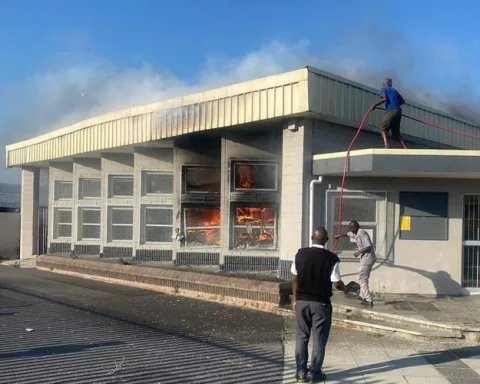Cape Town has stated its commitment to lawfully allocate and spend funds received for upgrading 16 informal settlements in Khayelitsha. This move was necessary because of the emergence of these settlements during the Covid-19 lockdown.
Allocation Questions Raised by National Human Settlements Minister
National Human Settlements Minister Mmamoloko Kubayi recently raised questions about the allocation and spending of funds for these settlements. However, the City remains committed to its plans.
Unanticipated Allocation of R111m
The City has received an unanticipated allocation of R111m from the national department of Human Settlements, which it considers a positive development. However, it emphasizes that lawful spending of these funds requires approval from the National Treasury.
Mayor Confirms City’s Plans in Letter
In response to Minister Kubayi’s media statement, Cape Town’s Mayor Geordin Hill-Lewis confirmed in an April 19th letter that the City indeed plans to use the funds for settlement upgrades, as long as it adheres to legal requirements.
Procurement Regulations and Rollover Permission
Officials understand the necessity to spend grant funds within their allocated financial year or to obtain official rollover permission. The City received the R111m allocation on March 30th, and procurement regulations would prevent spending the amount within the remaining weeks of the financial year ending in June 2023.
National Treasury Permission for Rollover Funds
As a result, the City awaits National Treasury permission for rollover funds to be spent in the new financial year, which begins on July 1st, 2023. Unfortunately, Mayor Hill-Lewis has not yet received a response to his letter.
Stand Firm Against Unlawful Spending
If the National Treasury denies rollover, it seems that the Minister might be pressuring the City into unlawful spending. In such a case, the City will stand firm against these pressures and ensure that every Rand is spent lawfully.
Timing of Funds’ Receipt Raises Concerns
The City is cautious about the timing of the funds’ receipt on the last day of the government’s financial year. The R111m allocation cannot be lawfully used for programs before June 2023 or in the next financial year without rollover permission.
Funding Welcomed but Legal Requirements Must Be Complied With
Despite concerns, the City welcomes the funding and eagerly awaits Treasury approvals to spend it lawfully for the benefit of Khayelitsha’s informal settlements. Given the importance of upgrading these settlements, it is crucial for all parties involved to cooperate and ensure that funds are spent in a manner that complies with legal requirements and benefits those in need.












